This rogue star has been traveling the Universe. And now, it’s finally entering our Solar System. But this isn’t just any regular star. It’s known as a quasi-star and is one of the biggest stars in existence.
What would happen if this star entered our Solar System? And how would Earth be affected?
Quasi-stars aren’t just regular stars. They’re powered by black holes. The theory is that the original star would have been so massive that the core started to collapse.
Normally a supernova would happen at this stage, but instead, the explosion is absorbed by the outer layers of the star, and a black hole forms at its core.
The black hole then feeds on this star for thousands of years, slowly absorbing it. Now, what would happen if this deadly star came toward our Solar System?
First, let’s understand just how massive this star is. To put it in perspective, our Sun is the largest object in our Solar system at 1.3 million km (865,000 mi) in diameter. It may seem massive, but that’s really nothing. Just 5.2 light-years away from us, there’s another star known as UY Scuti, which is 1,700 times larger than our Sun. Pretty big, right?
But this quasi-star is even bigger than that. Much bigger. This massive star has a diameter of 10 billion km (6 billion m), which is more than 7,000 times the size of our Sun. So yeah, this thing is an absolute unit, and now it’s coming for us.
If a quasi-star did enter our Solar System, we’d start to notice it much sooner than you might think. This one star would be as bright as an entire galaxy. Not only that, but it would be as luminous as at least 100,000 Suns.
So the closer the star got, the brighter everything would appear on Earth. But unfortunately, this star wouldn’t just be giving us brighter days than we’re used to. As soon as the star entered our Solar System, planets, asteroids, and any other objects would likely be thrown out of orbit.
This could cause epic meteor showers for us on Earth. Thousands of asteroids could all end up crashing on our planet. And if a planet were lucky enough to not get thrown out of orbit, it would still get engulfed by the quasi-star eventually.
The quasi-star would go all across our Solar System. It might engulf Neptune, and then even our massive planets like Saturn and Jupiter. It would continue this journey until it reached Earth. Humanity would be extinct at this point, due to the incredible temperatures of the star. And then, the planet would quickly heat up. Once it hit 260 °C (500 °F), the atmosphere would become steam and carbon dioxide.
Getting hotter, at 760 °C (1,400 °F), sulfur dioxide would be produced. And the Earth would continue to heat up until Earth’s crust and mantle would be completely vaporized, and the entire planet would be engulfed by the star. And as if this star hasn’t caused enough trouble, it could eventually become a supermassive black hole.
Subscribe to What-If on YouTube or follow the show on Facebook Watch.
Sources
- “Biggest black holes may grow inside ‘quasistars””. Battersby, Stephen. 2020. New Scientist.
- “Quasi-Stars: Black Holes At The Core Of The Universe’S Largest Stars”. 2020. Medium.
- “What are Rogue Stars?”. 2020. Universe Guide.
- “Black Hole Sun | By Brian Koberlein”. Koberlein, Brian. 2020. briankoberlein.com.
- “What are Quasi-Star, Hypothetical Massive Stars?”. 2020. Universe Guide
- “Quasi-stars: accreting black holes inside massive envelopes”. Begelman, Mitchell C., Elena M. Rossi, and Philip J. Armitage. 2008. Monthly Notices Of The Royal Astronomical Society 387 (4): 1649-1659. doi:10.1111/j.1365-2966.2008.13344.x.
- “How Big Is The Solar System? – NASA Solar System Exploration”. Davis, Phil. 2020. NASA Solar System Exploration.












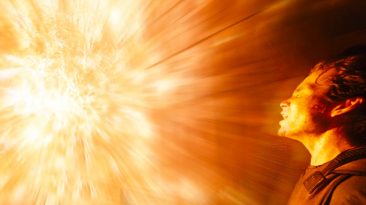
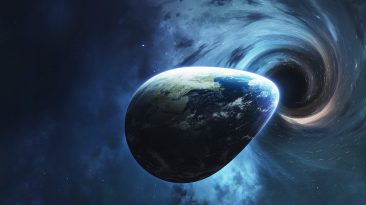
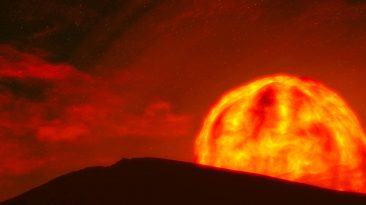
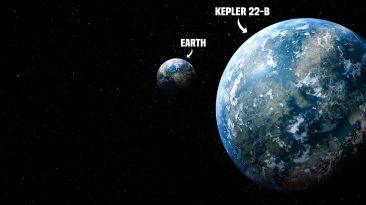
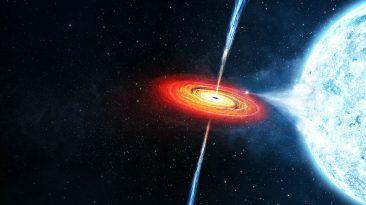

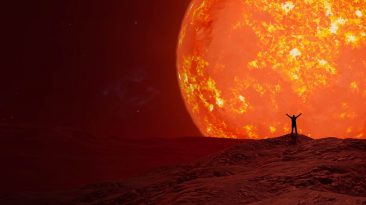

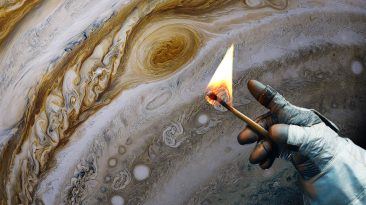







It’s 5,200 light years away not 5.2, please get it right, it pains me